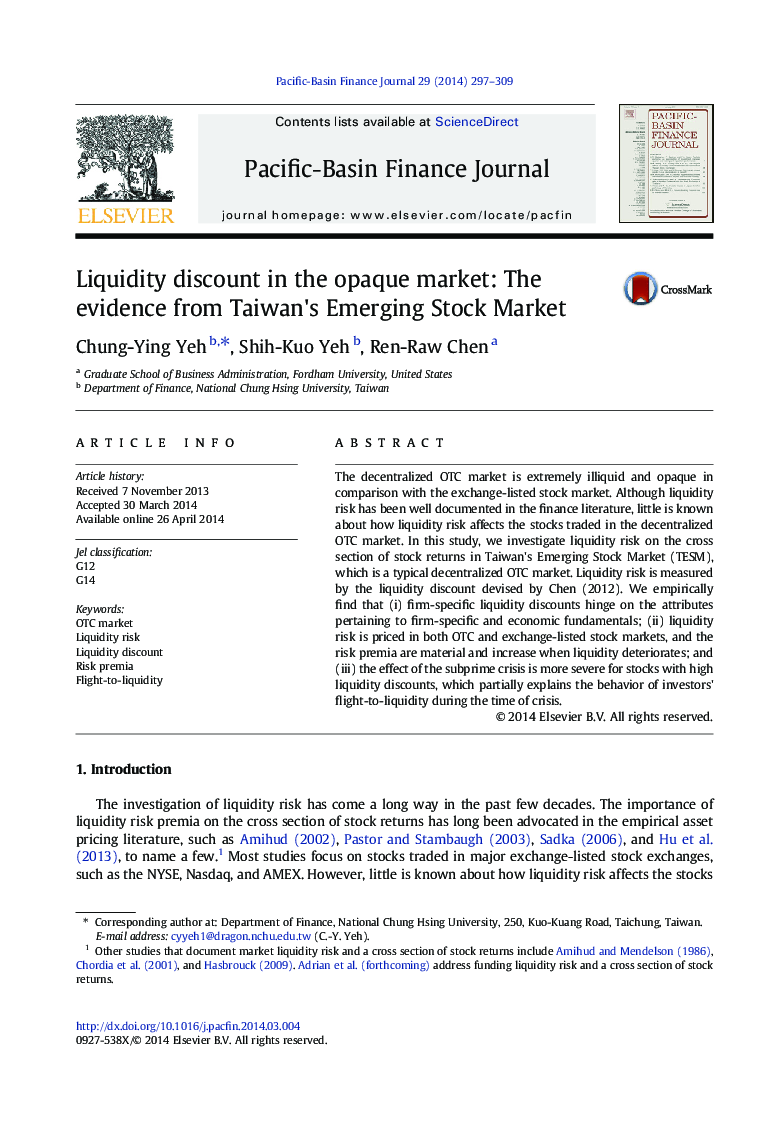| Article ID | Journal | Published Year | Pages | File Type |
|---|---|---|---|---|
| 973603 | Pacific-Basin Finance Journal | 2014 | 13 Pages |
•Study liquidity discounts in an OTC market of Taiwan.•Use a liquidity discount model to estimate illiquid asset price.•Conduct empirical tests of OTC stocks against the exchange-traded stocks in Taiwan.•Conduct the liquidity impact within the OTC stocks.
The decentralized OTC market is extremely illiquid and opaque in comparison with the exchange-listed stock market. Although liquidity risk has been well documented in the finance literature, little is known about how liquidity risk affects the stocks traded in the decentralized OTC market. In this study, we investigate liquidity risk on the cross section of stock returns in Taiwan's Emerging Stock Market (TESM), which is a typical decentralized OTC market. Liquidity risk is measured by the liquidity discount devised by Chen (2012). We empirically find that (i) firm-specific liquidity discounts hinge on the attributes pertaining to firm-specific and economic fundamentals; (ii) liquidity risk is priced in both OTC and exchange-listed stock markets, and the risk premia are material and increase when liquidity deteriorates; and (iii) the effect of the subprime crisis is more severe for stocks with high liquidity discounts, which partially explains the behavior of investors' flight-to-liquidity during the time of crisis.
